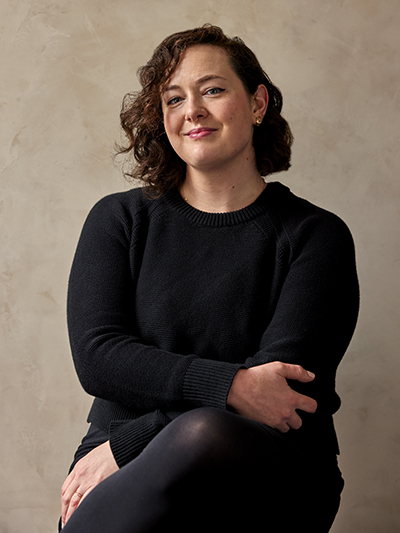Alessandra Amin is a historian of modern art in the Arab world, specializing in Palestinian painting and graphic arts during the second half of the twentieth century. Her work explores the aesthetic and philosophical currents mediating artists’ relationships to Palestine across chasms of space, time, and catastrophe, paying particular attention to the gendered dimensions of Palestinian futurities. Her research has been supported by the Center for Palestine Studies at Columbia University, the Social Science Research Council, the Palestinian American Research Center, Darat al-Funun, and the U.S. Department of Education. Her writing has appeared in Trans Asia Photography, MAVCOR Journal, and Art Journal, and is forthcoming in ARTMargins. At Penn, she is working on her first book project, Mother Figure: Art and the Palestinian Dream-State.
Alessandra Amin
Andrew W. Mellon Postdoctoral Fellow in the Humanities
2023—2024 Forum on Revolution
Alessandra Amin
Art History and Middle East Studies
University of California, Los Angeles, 2022
Mother Figure: Art and the Palestinian Dream-State, 1965-1982
Mother Figure looks to a moment bookended by the launch of the Palestinian Revolution in 1965 and the 1982 demolition of its epicenter in Beirut, charting the emergence of the dream and the maternal body as nested modes of relating to Palestine in the visual and literary arts of the era. Focusing primarily on the work of Mustafa Hallaj, Samira Badran, Ismail Shammout, and Juliana Seraphim, the study establishes the “dream-state” as a historically situated framework for conceptualizing Palestine, arguing that the language of dreaming negotiates the reckless hope of the revolutionary moment with the profoundly disorienting experiences of exile and erasure. Across a diverse corpus of cultural production, this framework marks Palestinians’ difference as a people for whom “imagining” the nation is not a subconscious means of belonging to a social group but a complex act of mourning, speculation, resistance, and survival. Furthermore, its articulation through different iterations of the maternal body––faithful surrogate, loving mother, barren monster, virgin territory––indexes both the tenacious futurity of the dream-state and the patriarchal parameters of its emancipatory imaginary.



